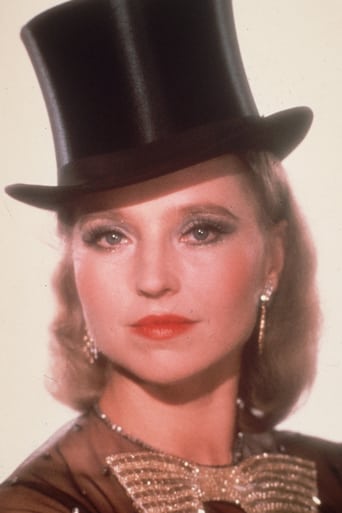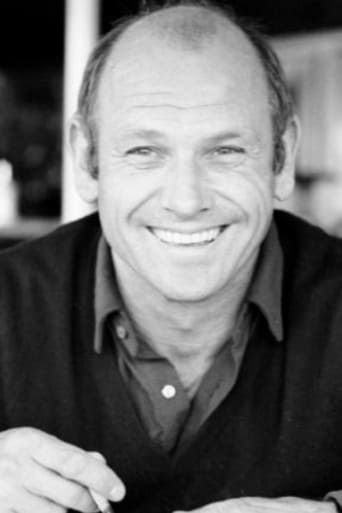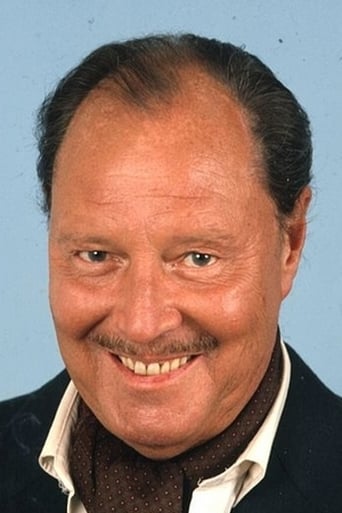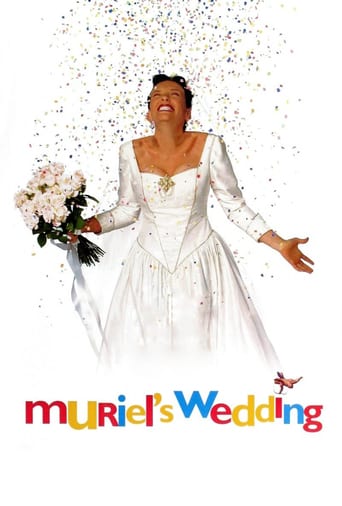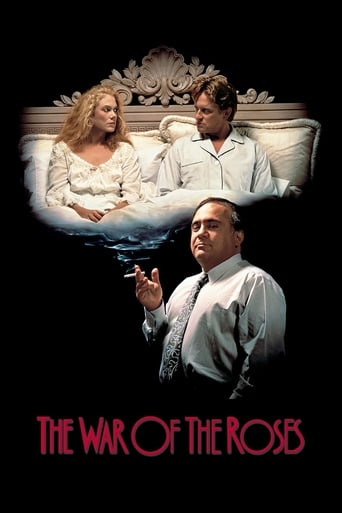
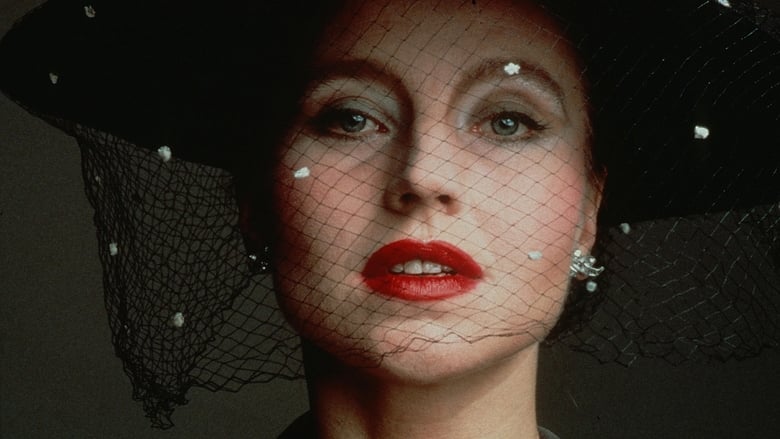
The Marriage of Maria Braun (1979)
Maria marries a young soldier in the last days of World War II, only for him to go missing in the war. She must rely on her beauty and ambition to navigate the difficult post-war years alone.
Watch Trailer
Cast


Similar titles
Reviews
From director Rainer Werner Fassbinder (The Bitter Tears of Petra Von Kant, Fear Eats the Soul, Fox and His Friends, I assumed this was a German war film about the sister or another female relative of Eva Braun, and even though it wasn't I watched with interest. Basically, set in Germany, 1943, and during a bombing raid by Allied forces, Maria (Hanna Schygulla) is married to soldier Hermann Braun (Klaus Löwitsch), but after only a short time together he returns to the front, and she is later told he has been killed. She starts work in a bar, often visited by Americans, as a hostess, and after a relationship with African-American soldier Bill (George Byrd) she becomes pregnant with his baby, but she is shocked to be caught with him by Hermann who is in fact alive. In the fight between the two men, Maria unintentionally kills Bill hitting him over the head with a full bottle, but when she expresses love for her husband he takes the blame for the crime and is put in prison. After aborting her pregnancy she heads home on a train and gets the attention of Karl Oswald (Ivan Desny) the old wealthy industrialist, and he offers her a new job as his assistant, and of course she soon becomes his mistress. Maria tells Hermann in prison about the latest events, promising their life will get going again after he is released, and she earns loads of money to buy a new house, Oswald even visits her husband to offer him and his wife his wealth if he leaves his wife after he is released. This offer is kept a secret, but when Hermann is let out he heads for Canada, only sending his wife a gift every month so she knows he still loves, and when he finds out that that Oswald has died he returns to Germany. In Oswald's will that executor Senkenberg (Hark Bohm) reads out, the secret agreement between him and Hermann is revealed, and in distress she ends her life by lighting her cigarette and creating a gas explosion. Also starring Gisela Uhlen as Mother, GoldenEye's Gottfried John as Willi Klenze and Elisabeth Trissenaar as Betti Klenze. In the leading role Schygulla gives a good emotionally up and down performance, the story set in the war is admittedly a little confusing for me at times, but it had some good melodramatic moments, full of the sort of things you get in those kinds of genre films, so it is certainly a worthwhile romantic drama. It was nominated the Golden Globe for Best Foreign Film. Good!
Maria Braun got married right in the middle of combat all around her and her husband Hermann. An explosion ripped through the building, to begin with, and she and Hermann had to sign the papers on a pile of rubble on the street. Perhaps this may strike some as a heavy-handed metaphor for what's about to come: marriage on the rocks, so to speak. It's a betrothal where the husband goes off to war and is held in a Russian prison camp, unbenownst to the helpless but hopeful and proud Maria, who keeps standing by the depressing rubble of the train station as some come home, others don't, with a sign awaiting Hermann.Trouble arises, as happens in Rainer Werner Fassbinder's melodramas, and as its one of his best and most provocative, we see as Maria (uncommonly gorgeous Hanna Schygulla in this role) will do a two-face: she'll stand by her man, even if it means working at a bar for American GI's and, even still after she hears from a fellow soldier that Hermann has died will still stand by him as she sleeps with a black GI and comes close to bearing his child (that is, naturally, until he reappears and a murder occurs and he takes the rap so she can be safe), or working for a German businessman (effectively sympathetic Ivan Desny) and becoming his sometimes mistress and rising star in the company. Maria will do whatever it takes to be successful, but she'll always be married.It's hard to say there's anything about Maria that isn't fascinating. Money, sex, power, all of these become interchangeable for Maria. She's like the feminist that has her cake and eats it with a sultry smile: she gets to have a husband, more or less (actually a lot less until the last ten minutes of the film) while obtaining things- a man who dotes on her whenever he can, a new and expensive house with servants, a secretary, money- that others around her aren't getting due to already being with a man or too weak in a position to rise anywhere (such as the secretary, played interestingly enough by Fassbinder's own mother).Maria is sexy, confident, and all alone, with an idealized life going against a life that should be made in the shade. She says of the two men- the American soldier and poor old and sick Oswald- that she's fond of them, and at the same time will stick by those roses the confused and soul-searching husband Hermann sends from Canada, after being released from prison. She's casts a profile that a feminist would love to trounce, but understand where she's coming from and going all the way.Fassbinder employs this inherent contradiction, and moments with Maria appear to go against the conventions of a melodrama (for example, Hermann walking in on the jubilant and half-naked Maria and GI is just about a masterpiece of a scene, with Maria's reaction not of surprise or guilt but pure happiness to see that he's there let alone alive), while sticking to his guns as a director of such high-minded technique with a storyline that should be predictable. But it isn't really. It's like one big metaphor for a country that, after the war, couldn't really move on to normalcy. A few times Fassbinder puts sound of the radio on in the background, and we see Maria walking around her family house, hustle and bustle going on around her, and the radio speaks of a divided Germany, of things still very unsettled, of a disarray. Maybe the only way to cope is excess, or maybe that's just my interpretation of it.It's hard to tell, really, under Schygulla's stare face and eyes, anyway. It's such an incredible performance, really, one of those showstoppers that captures the glamor and allure of an old-time Hollywood female star while with the down-and-dirty ethic of a girl of the streets. Most telling are the opposing costumes one sees in one scene when she finally is with her husband, where she stars in one of those super-lustful black lingerie pieces and high heels, and then moves on to a dress without even thinking about it. That's almost the essence of what Maria is, and Schygulla wonderfully gets it down, a headstrong but somehow loving figure who is adored and perplexed by the men around her, sometimes in a single sentence. This is what Fassbinder captures in his wonderful first part of his "trilogy"; while I might overall prefer Veronika Voss as a masterpiece, Maria Braun is perhaps just as good as a character study, of what makes a woman tick and tock with (almost) nothing to lose.
Sporadically this does demonstrate masterful dialog and especially finely crafted direction from the distinguished German filmmaker, but summing it's entirety as a masterpiece feels way overpraised. There seems to be almost as much dead weight being carried around in The Marriage of Maria Braun as there is subtle grace.Thankfully to aid Fassbinder's articulate work is lead (and apparent muse) Hanna Schygulla. Her transformation, however underhanded in pace, is entertaining to behold and probably one of the stronger female performances of the time. She exudes a sensuality better suited for long pauses then line recitals, but overall does an admirable job through and through.Purists may revel in it's technical pronunciations and metaphoric finesse, but a certain emotional detachment lingers the entire time- contrary to what the script would imply. Don't let the typical European surprise shock ending and over-theorized allegorical conjecture fool you into calling this a masterpiece, it is still just a reasonably well made journey into the female psyche of post-war Germany.
The Marriage of Maria Braun (MMB) is about a German girl (Maria) getting married to a German soldier (Herman Braun) just at the ending of the war. After being married for half a day and a night, Herman is send to the front again. To make ends meet, Maria starts working at a bar for mainly American soldiers and get to know a black soldier. She got word that Herman died at the front, and things develop between her and the American soldier. Herman walks in on them, in bed, and after a confrontation between him and the American, Maria killed the American. Herman admits to the murder, ends up in jail and Maria vows to wait for him. The country is in shambles; one sees people leaving everything that they are busy with for a cigarette. There are food shortages. It is in short, a time of survival of the fittest. Basically this film projects Maria's attitudes - those attitudes she permits herself under the mentioned circumstances, as a metaphor for Germany's loss of soul after they lost the war, and how it proceeds to rebuild itself. For example, Maria has the following conversation with a peddler (played by Fassbinder himself); the peddler tries to sell her an excellent copy of Kleist and she remarks that "Kleist burns out to quickly, it does not provide enough heat for the cold". The peddler answers "That's another way to look at it. Right now, it's probably the correct way". Maria meets a French/German business man, Karl Oswald after she bargains her way into the first class train compartment. She decides to get involve with Karl, "You're not having an affair with me; I'm having an affair with you". She also takes responsibility in the company, and after a while has the complete trust of the firm. When Karl says "I suppose we'll just have to wait for a miracle" she replies "I prefer making miracles then wait for them". In her own words, she has become the "Mata Hari of the economic miracle".In a lot of Fassbinder's films he tried to expose the psychological processes which lie behind social mechanisms (see Freud); in other words, he liked pointing his camera at the bullsh*t, the false social mechanisms, the pretending. The direct approach Maria takes in this film is successful to convey this ideology. For example, she phones Karl and when he picks up the phone her request is straight to the point "I need someone to sleep with". As Fassbinder said "the emotions people felt did not exist at all and were only a kind of sentimentality which we thought we needed to be properly functioning members of society". He also remarked that his films are anti emotional. I particularly liked the scene when Karl and Maria meet in the Munich restaurant (apparently, frequently visited by Hitler himself). Maria appears in control and Karl a bit on the down side, as if Maria's 'brutal honesty' wears him out, as if he is not completely up to the situation anymore. Karl says "I have to tell myself over and over that I love life". Maria replies "That's life isn't it. As if we signed a contract to enjoy life. And then we go out to eat and talk about food". I guess this is also about Fassbinder attitudes on relationships, to never submit completely to anyone. And why would you, if the central matter of most of his films is about "What love becomes in this society a commodity, an instrument of power, a weapon."It was remarked that it is typical Fassbinder to have the scenes with Maria and Betti walking in expensive dresses in the ruins after the war - with these clothing essentially the wrong period. What I think he wanted to portray here were those attitudes, when you feel bad, that "you can always put on your make up and face the day looking great". But, Fassbinder was not interested in perfection. Any mistakes made in a film could just be corrected in the next project. Since he completed films (approximately 4 a year) the way other people rolled cigarettes, it is not peculiar that this film has some very bad scenes. Peter Marthesheimer, who wrote most of the script, mentioned that Fassbinder likely dreamed up the whole scene with Maria and the American in the park, overnight. Hanna Schygulla is brilliant as Maria. Mostly, she just stares bluntly into the camera. In Maria's own words "It is a bad time for emotions. But, I like it like that". There are different opinions about the end. After Karl died of a hart attack, Herman finally shows up. (Herman left for Australia after he got out of prison, to "become human again".) After the testament is delivered (made out to her and Herman in half), Maria forgets to close the gas on the stove when she lights her cigarette, and blow her and Herman up. For me it is obvious that she just did that by accident. At the same time, she must have been rattled when her dreams finally seem about to come true. She must have felt as if she was not herself anymore. She felt as if she had outlived herself.


